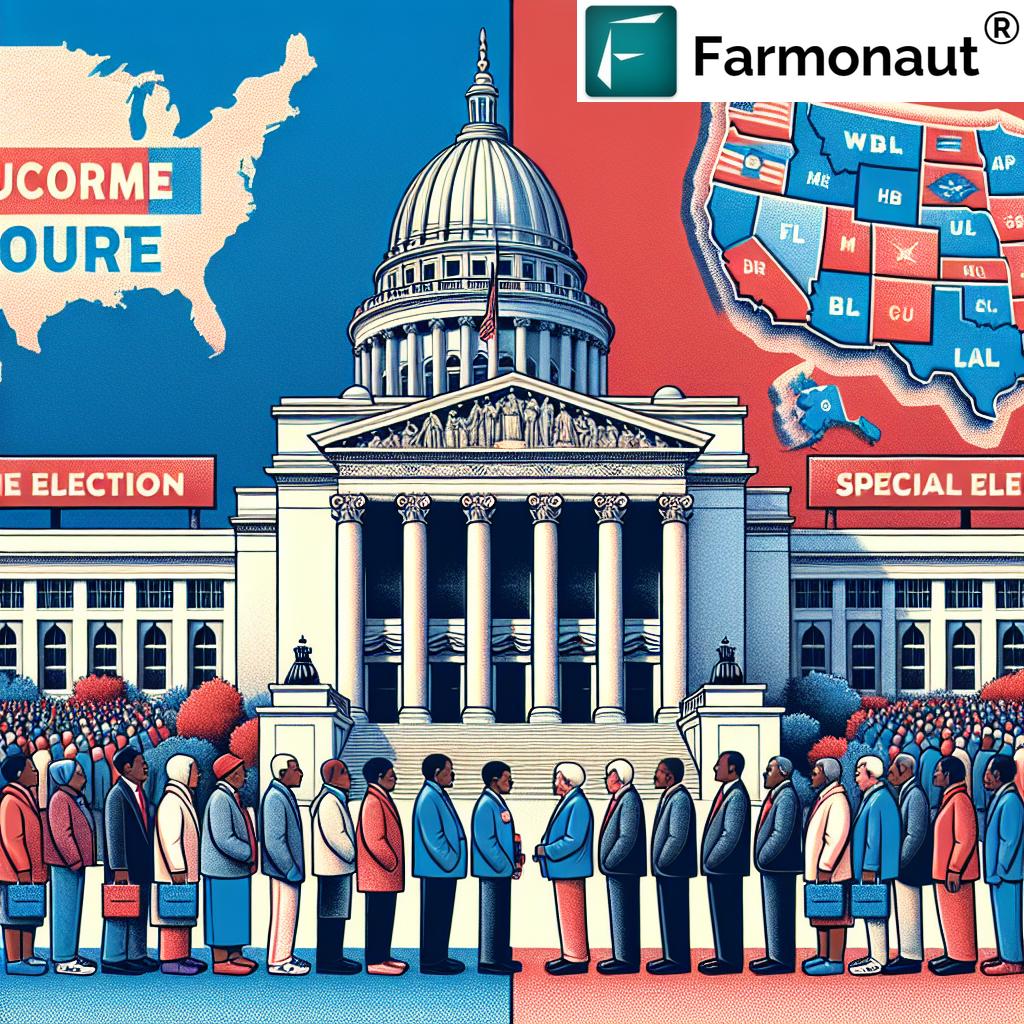Bradley University Students Lead Walkout: Raising Awareness on Immigration Policies and Birthright Citizenship Debate
“Over 14% of US university students are immigrants, highlighting the significance of immigration policies in higher education.”
In the heart of Peoria, Illinois, a powerful demonstration unfolded at Bradley University, shedding light on the complex and contentious issue of immigration policies in the United States. As we delve into this pivotal moment of student activism, we’ll explore the multifaceted aspects of the immigration reform activism that has taken center stage on campuses across the nation.
The Echoes of Change: Bradley University’s Student Walkout
On a crisp Friday afternoon, the usually quiet campus of Bradley University erupted with chants and raised voices. The Association of Latin American Students (ALAS) orchestrated a university student walkout that would become a defining moment in the ongoing immigration policies protest movement sweeping across American universities.

The demonstration, which drew several dozen participants, including students not affiliated with ALAS and even a professor, was a powerful display of solidarity. Marching around Bradley Hall and gathering in front of the Renaissance Coliseum, protesters held signs with poignant messages such as “Human rights have no borders,” “Education not deportation,” and “No human is illegal.” These slogans encapsulated the core issues at the heart of the illegal immigration awareness campaign.
The Catalyst: Executive Orders and Constitutional Debates
At the crux of this immigrant rights demonstration were the recent executive orders on immigration signed by President Donald Trump. These orders, aimed at removing and preventing illegal immigrants from residing in the United States, have sparked intense debate and concern among immigrant communities and their allies.
One of the most controversial aspects of these policies is the potential reinterpretation of the Constitution’s 14th Amendment, which has long been the foundation of birthright citizenship in the U.S. The president’s executive order, currently blocked nationwide, would allow citizenship to be denied to people born after February 19 if their parents are in the country illegally.
The Personal Stakes: Voices from the Frontlines
Two freshmen, Lesley Arce and Lindsey Crvants, stood at the forefront of this immigration reform activism, sharing their personal stories and concerns. Both born on U.S. soil to immigrant parents, they represent the very demographic that could be affected by changes to birthright citizenship laws.
“It is different here than in Mexico,” Arce pointed out, highlighting the stark contrasts between life in the U.S. and the countries many immigrants leave behind. Crvants added, “A whole new language, a whole new culture, society, it’s really scary.”
Their words underscore the human element often lost in policy debates – the real lives and futures hanging in the balance of these decisions.
The Broader Impact: Beyond the Campus Borders
While the walkout at Bradley University was a localized event, it reflects a broader national conversation about US border policy issues and the ongoing 14th Amendment controversy. The demonstration served not only as a protest but also as an educational platform, raising awareness about the complexities of immigration law and its far-reaching effects.
ALAS President Gigi Prado emphasized the importance of opening doors to conversations with affected and scared students. “A lot of our students are from Chicago, and they’re having a lot of immigration raids in Chicago, so a lot of our students are just worried,” Prado explained, highlighting the real fears and uncertainties faced by immigrant communities.

The Role of Universities in the Immigration Debate
Universities across the United States have become focal points for discussions and activism surrounding immigration policies. As institutions of higher learning, they play a crucial role in fostering dialogue, conducting research, and providing support for immigrant students.
At Bradley University and beyond, we’re seeing a growing trend of university immigration advocacy. This involves not only student-led protests but also administrative efforts to protect and support immigrant students, including those protected under programs like DACA (Deferred Action for Childhood Arrivals).
The Broader Context: Immigration Policies and Their Impact
To better understand the significance of the Bradley University walkout, it’s essential to examine the broader landscape of immigration policies in the United States. Let’s take a look at a comparison of current and proposed policies and their potential impacts:
| Policy Area | Current Policy | Proposed Changes | Potential Impact on Students/Families |
|---|---|---|---|
| Birthright Citizenship | 14th Amendment grants citizenship to all born on U.S. soil | Reinterpretation to exclude children of illegal immigrants | Estimated 300,000 babies annually could be affected; uncertainty for immigrant families |
| DACA | Protection for certain undocumented immigrants brought to U.S. as children | Potential termination of program | Approximately 700,000 DACA recipients at risk of deportation; loss of work permits and educational opportunities |
| Deportation Guidelines | Prioritized deportation of criminals and recent border crossers | Expanded criteria for deportation | Increased fear and uncertainty in immigrant communities; potential separation of families |
| International Student Visas | Various visa programs for international students | Potential restrictions on certain countries; increased scrutiny | Possible decline in international student enrollment; challenges for universities in maintaining diversity |
This table illustrates the complex web of policies and their far-reaching implications for immigrant students and their families. It’s clear that the issues at stake extend far beyond the borders of any single campus, affecting millions of lives across the nation.
The Power of Education in Immigration Advocacy
One of the key messages emerging from the Bradley University walkout was the importance of education in addressing these complex issues. By raising awareness and fostering informed discussions, students are playing a crucial role in shaping the narrative around immigration policies.
As Lesley Arce pointed out, “A lot of people weaponize not knowing what’s going on. They’ll purposely not inform themselves so they can be like, ‘I don’t know what’s going on, so I don’t have an opinion.'” This highlights the critical need for comprehensive education on immigration issues, not just for those directly affected, but for all members of society.
The Intersection of Technology and Immigration Advocacy
In the digital age, technology plays an increasingly important role in immigration advocacy and policy implementation. While not directly related to the student protests, it’s worth noting how technological advancements are shaping the landscape of immigration and agriculture – two deeply interconnected fields.
For instance, companies like Farmonaut are leveraging technology to address challenges in agriculture, which has historically been a significant employer of immigrant workers. Through their blockchain-based traceability solutions, Farmonaut is enhancing transparency in agricultural supply chains, which could potentially impact labor practices and immigration policies in the sector.
While Farmonaut’s primary focus is on agricultural technology, their innovations indirectly intersect with immigration issues by potentially transforming the landscape of agricultural employment and supply chain management. This serves as a reminder of the complex interplay between technology, agriculture, and immigration policies.
The Road Ahead: Challenges and Opportunities
As we reflect on the Bradley University walkout and the broader context of immigration policy debates, it’s clear that the road ahead is fraught with challenges. However, it also presents opportunities for meaningful dialogue, policy reform, and social progress.
“The 14th Amendment, ratified in 1868, has been the cornerstone of birthright citizenship debates for over 150 years.”
The ongoing debate surrounding the 14th Amendment and birthright citizenship underscores the enduring nature of these issues. As society evolves, so too must our approach to immigration policies, balancing national security concerns with humanitarian considerations and the economic realities of a globalized world.
The Role of Technology in Shaping Immigration Policies
As we navigate these complex issues, it’s worth considering how technology can play a role in addressing some of the challenges associated with immigration and border control. While not directly related to immigration policy, advancements in agricultural technology, such as those developed by Farmonaut, offer insights into how innovation can transform industries that have traditionally relied heavily on immigrant labor.
For instance, Farmonaut’s fleet management solutions could potentially impact how agricultural businesses operate, potentially shifting labor needs and influencing immigration patterns in rural areas. Similarly, their carbon footprinting technology contributes to sustainable farming practices, which could have long-term implications for global migration patterns driven by climate change.
While these technologies are not direct solutions to immigration policy challenges, they represent the kind of innovative thinking that could help shape more nuanced and effective approaches to complex social issues.
The Importance of Solidarity and Collective Action
The Bradley University walkout serves as a powerful reminder of the impact of collective action. By standing together in solidarity, students were able to amplify their voices and bring attention to critical issues affecting immigrant communities.
This spirit of solidarity extends beyond campus borders. Organizations across the country are working tirelessly to support immigrant rights and advocate for comprehensive immigration reform. From legal aid services to community outreach programs, these efforts play a crucial role in supporting immigrant communities and shaping public discourse.
Looking to the Future: The Ongoing Fight for Immigrant Rights
As we look to the future, it’s clear that the fight for immigrant rights and comprehensive immigration reform will continue to be a defining issue of our time. The Bradley University walkout is just one chapter in a larger story of activism, advocacy, and social change.
Key areas of focus for future advocacy efforts include:
- Protecting DACA recipients and providing a path to citizenship for Dreamers
- Reforming the immigration court system to address backlogs and ensure fair hearings
- Addressing the root causes of migration in Central America and other regions
- Developing more humane and effective border control policies
- Ensuring access to education and healthcare for immigrant communities
The Role of Education in Shaping Immigration Policy
As universities continue to be at the forefront of immigration debates, the role of education in shaping policy cannot be overstated. By fostering informed discussions, conducting research, and providing platforms for diverse voices, educational institutions play a crucial role in developing nuanced approaches to complex issues.
For students interested in delving deeper into immigration policy and advocacy, many universities offer courses and programs focused on immigration law, policy analysis, and social justice. These educational opportunities can provide valuable insights and skills for those looking to make a difference in this field.
The Intersection of Technology and Immigration
As we consider the future of immigration policy, it’s important to recognize the growing role of technology in this space. While companies like Farmonaut focus primarily on agricultural technology, their innovations highlight how tech advancements can transform industries and potentially impact immigration patterns.
For instance, Farmonaut’s crop loan and insurance solutions could indirectly influence rural economies and agricultural labor needs. Similarly, their large-scale farm management tools might reshape how agricultural businesses operate, potentially affecting employment patterns in the sector.
Conclusion: A Call to Action
The Bradley University walkout serves as a powerful reminder of the ongoing struggles and debates surrounding immigration policies in the United States. As we’ve explored, these issues are complex, multifaceted, and deeply personal for millions of people across the country.
Moving forward, it’s crucial that we continue to engage in informed, compassionate discussions about immigration reform. Whether through activism, education, or technological innovation, each of us has a role to play in shaping a more just and equitable immigration system.
As we conclude, let’s remember the words of the students who led this walkout – their call for awareness, education, and human rights. In their courage and conviction, we find inspiration to continue the important work of advocating for immigrant rights and comprehensive immigration reform.
FAQ Section
- What sparked the Bradley University walkout?
The walkout was organized by the Association of Latin American Students (ALAS) in response to recent immigration policies signed by President Donald Trump, particularly those affecting illegal immigrants and potentially reinterpreting birthright citizenship. - What is the 14th Amendment controversy?
The controversy centers around the potential reinterpretation of the 14th Amendment, which currently grants citizenship to all born on U.S. soil. Proposed changes could exclude children of illegal immigrants from this right. - How are universities involved in immigration advocacy?
Universities often serve as platforms for discussions, research, and activism related to immigration policies. They also provide support services for immigrant students and may advocate for policies that protect their diverse student bodies. - What is DACA, and why is it important in this context?
DACA (Deferred Action for Childhood Arrivals) is a program that provides protection for certain undocumented immigrants brought to the U.S. as children. Its potential termination is a significant concern for many immigrant students and their families. - How can individuals support immigrant rights?
Individuals can support immigrant rights by staying informed, participating in advocacy efforts, supporting organizations that provide services to immigrant communities, and engaging in respectful dialogue to promote understanding and empathy.
For those interested in learning more about innovative agricultural technologies that are shaping rural economies and potentially influencing immigration patterns, visit Farmonaut’s web app or explore their mobile applications:
Earn With Farmonaut: Affiliate Program
Earn 20% recurring commission with Farmonaut’s affiliate program by sharing your promo code and helping farmers save 10%. Onboard 10 Elite farmers monthly to earn a minimum of $148,000 annually—start now and grow your income!


















